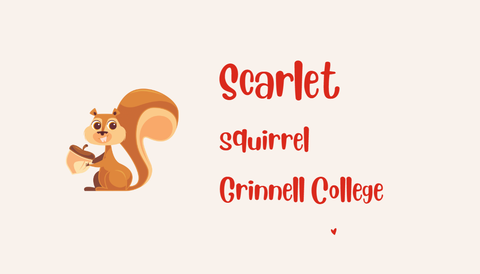Q. Who Needs a Business Card? A. You Do!
In this digital age, business cards continue to be a powerful networking tool for students and professionals alike. Students attending a conference, competition, or hackathon might consider printing a small run of cards to share with new contacts. Handing someone a business card, however, doesn’t mean sitting back and waiting for that person to call. Following through after the event is key to networking success.
Today’s business cards have their roots in fifteenth century China. Believed to have originated among the wealthy, visiting cards were elegant presentations used as a means of introduction. They were soon adapted by the European elite, and etiquette surrounding the cards dictated their use for everything from business deals to dating. With the advent of the printing press, businesses sought to connect with customers, creating trade cards representing their business location and specialties.
A well-designed business card offers the bearer a chance to make a great first impression and to hand a new contact a tangible record of the meeting. An exchange of cards means both parties will have an easy time finding contact information to follow up on their conversation. The more formal the occasion, the more useful and appropriate it is to carry and share business cards.
Students who would like to design their own cards can do so in a variety of ways. Most printers will do a small run of cards at a reasonable price. Print-on-demand sites like Moo and VistaPrint have scores of card designs, or make your own from scratch with a free account on canva.com. If you’d like a Grinnell College card, Communications provides a student card design. While the standard for business cards varies by industry, you can’t go wrong with a clean, accessible design. Keep the information on your card simple.
- First and Last Name (include middle name(s) and/or initials and/or suffixes if you use them regularly)
- Major(s), college, (intended) graduation date and/or intended professional identification or aspiration (writer/actor/bio-chemist, journalist, economist, critical thinker, etc.)
- US phone number and/or number in your home country
- Professional email address (one that you use now and you will continue to use for job/internship searches or networking)
- (optional) LinkedIn Profile URL (if you’re not on LinkedIn yet, get set up using our networking support found here: https://career.grinnell.edu/channels/expand-your-network-mentor/. Be sure to customize your profile URL so that it’s a clean and clear line on your card [link])
- Website, if you have one
Next Steps
- Get creative and shop local
- Design for free on canva.com and take your design to Total Choice (printable PDF sized 3.5” x 2”, bleed not included, full-color, 50 cards starting at $10) or Premier Printing (50 cards, one-sided full-color starting at $25)
- Go classic
- Use the College’s design [click on View Resource button]
- Spice it up with print-on-demand designs from online companies like:

